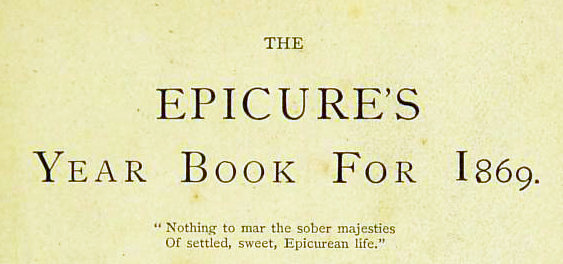 According to Jerrold’s satire “Picnic Reform,” British “Picnic- frequenters” must radically alter their “picnic gastronomy.” Change is accomplished by eliminating the ordinary. “Could anything be more barbarous?”...
According to Jerrold’s satire “Picnic Reform,” British “Picnic- frequenters” must radically alter their “picnic gastronomy.” Change is accomplished by eliminating the ordinary. “Could anything be more barbarous?”...
 James Jacques Joseph Tissot’s La Partie carrée, aka The Foursome, is more sexually suggestive than the English title indicates. The French title Partie Carrée suggests a sexual tryst and alludes to Édouard Manet’s The Luncheon on the Grass (1863)....
James Jacques Joseph Tissot’s La Partie carrée, aka The Foursome, is more sexually suggestive than the English title indicates. The French title Partie Carrée suggests a sexual tryst and alludes to Édouard Manet’s The Luncheon on the Grass (1863)....
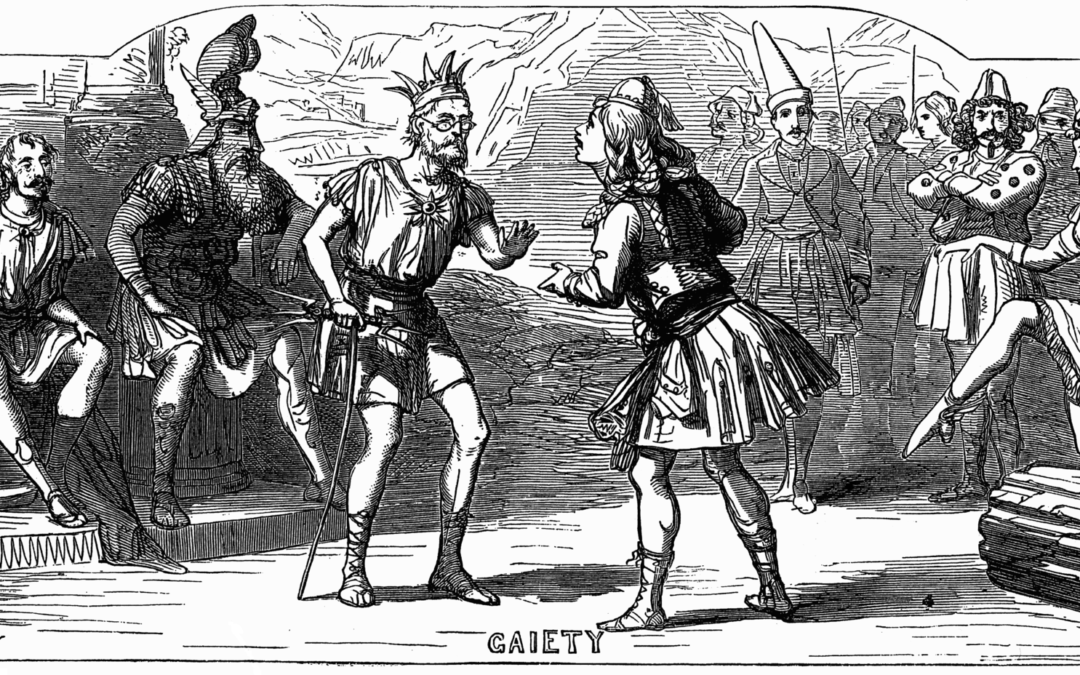 Gilbert and Sullivan’s Thespis or the Gods Grown Old is an early collaboration and not one of their best. It’s a topsy-turvy derivative version of Jacques Offenbach’s operetta Orpheus in the Underworld or Orphée aux envers. Instead of comedy in the...
Gilbert and Sullivan’s Thespis or the Gods Grown Old is an early collaboration and not one of their best. It’s a topsy-turvy derivative version of Jacques Offenbach’s operetta Orpheus in the Underworld or Orphée aux envers. Instead of comedy in the...
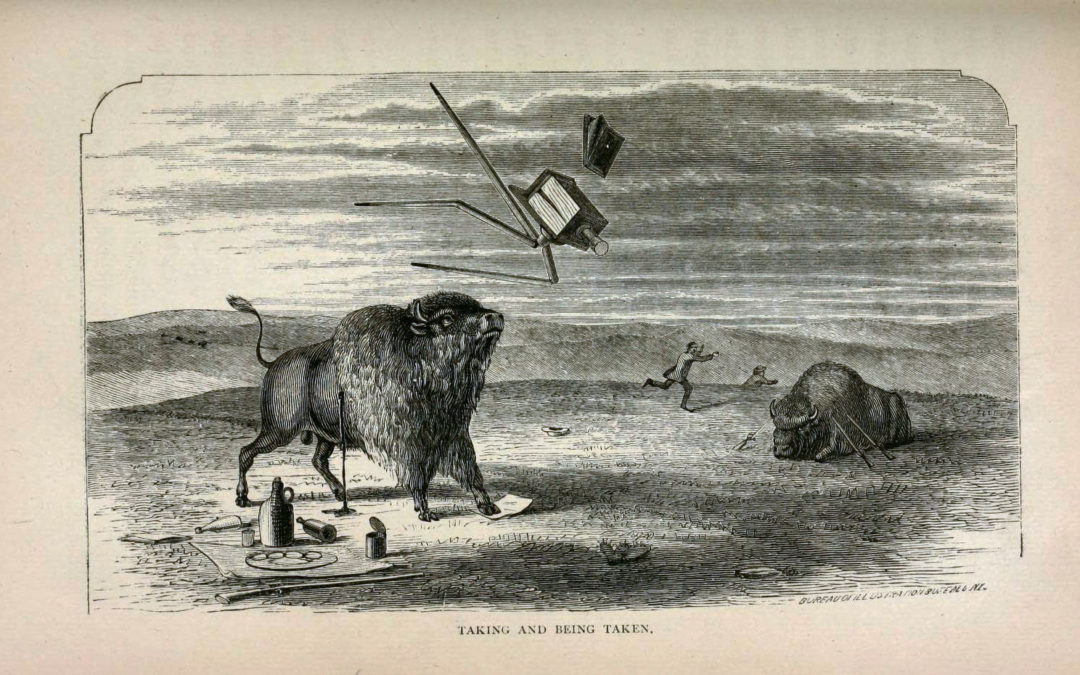 Worrall’s “Taking and Being Taken” depicts a buffalo unsetting a photographer’s picnic. It’s a topsy-turvy moment in which the Buffalo, then being exterminated on the American Great Plains, gets even (momentarily) by disrupting a hapless...
Worrall’s “Taking and Being Taken” depicts a buffalo unsetting a photographer’s picnic. It’s a topsy-turvy moment in which the Buffalo, then being exterminated on the American Great Plains, gets even (momentarily) by disrupting a hapless...
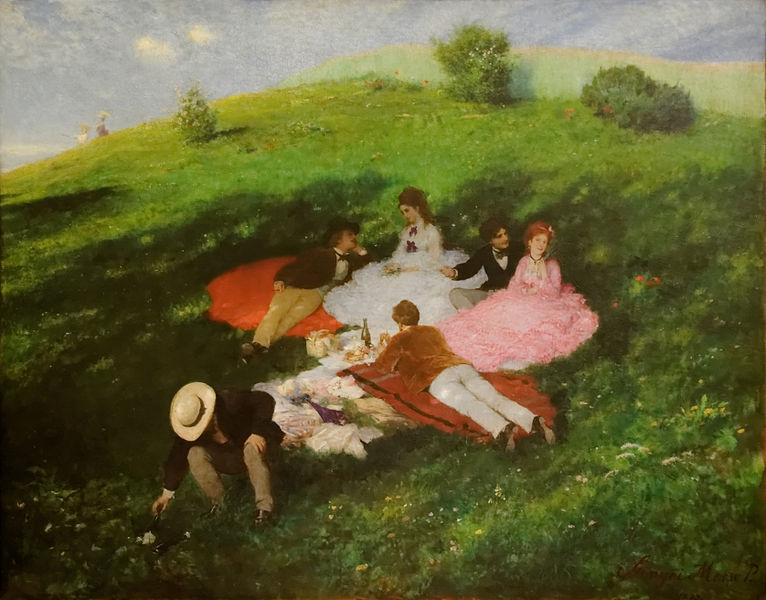 Majális is Merse’s staid Hungarian middle-class-style homage to Manet’s Dejeuner sur L’herbe. Though this is obviously a picnic, the title means “Mayfair.” Merse does not use the Hungarian loanword piknik or the expression jó s Majális zórakozás, a pleasant amusement...
Majális is Merse’s staid Hungarian middle-class-style homage to Manet’s Dejeuner sur L’herbe. Though this is obviously a picnic, the title means “Mayfair.” Merse does not use the Hungarian loanword piknik or the expression jó s Majális zórakozás, a pleasant amusement...
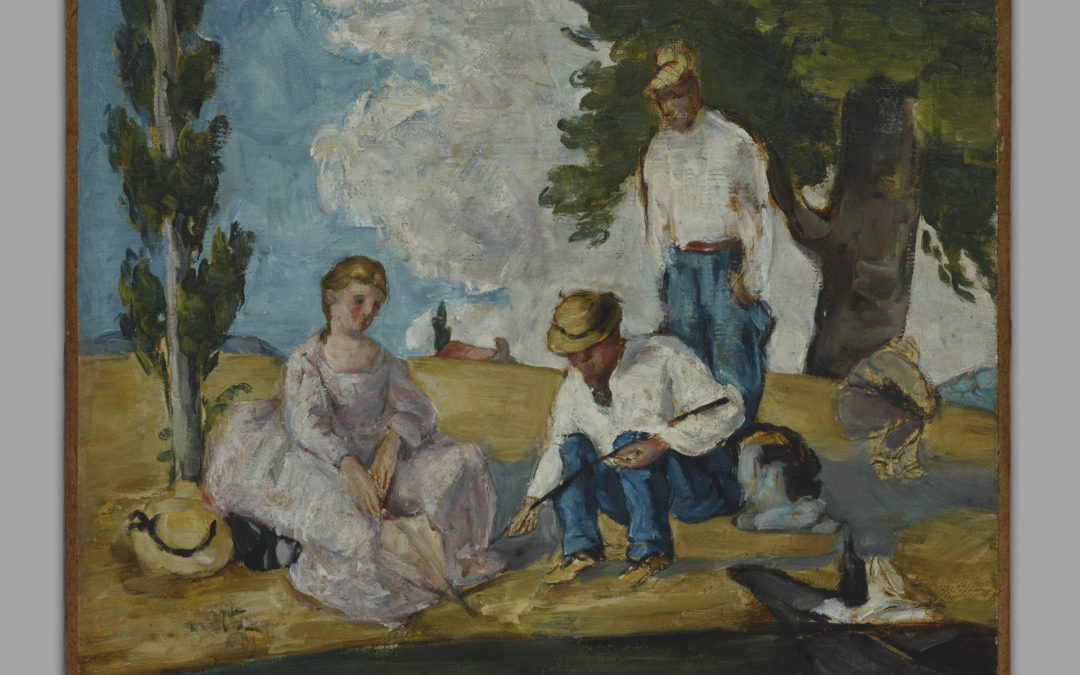 Cezanne’s Picnic on a Riverbank (1873-1874) is a partie de campagne that may be a vague allusion to Manet’s Luncheon on the Grass (1863) A trio of two men and a woman congregate on the riverbank. The woman sits alone, hat off, her parasol between her legs....
Cezanne’s Picnic on a Riverbank (1873-1874) is a partie de campagne that may be a vague allusion to Manet’s Luncheon on the Grass (1863) A trio of two men and a woman congregate on the riverbank. The woman sits alone, hat off, her parasol between her legs....
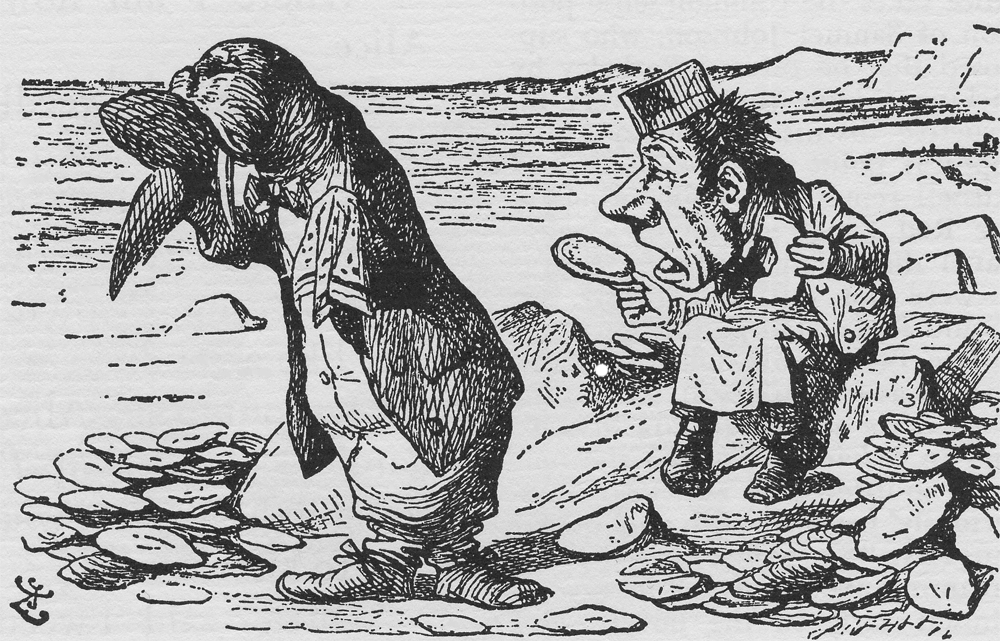 Carroll upends beach picnic expectations in Through the Looking-Glass and What Alice Found There (1871). Still, its tenor is darkly mocking, qualities evident in Tweedledee’s poem “The Walrus and the Carpenter” Of course, everyone laughs at the silly...
Carroll upends beach picnic expectations in Through the Looking-Glass and What Alice Found There (1871). Still, its tenor is darkly mocking, qualities evident in Tweedledee’s poem “The Walrus and the Carpenter” Of course, everyone laughs at the silly...
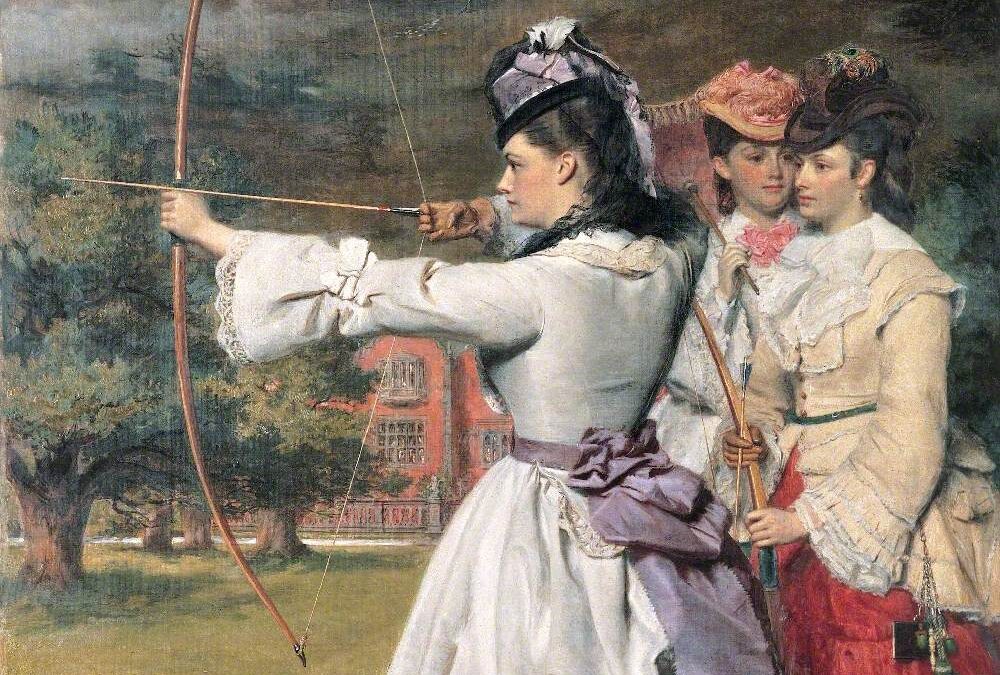 Eliot uses sport to illustrate gender relationships. Daniel Deronda has two archery picnics that do not meet the usual expectations of being joyous. Both archery picnics are metaphors in which Gwendolyn Harleth and the other women archers are contrasted to the goddess...
Eliot uses sport to illustrate gender relationships. Daniel Deronda has two archery picnics that do not meet the usual expectations of being joyous. Both archery picnics are metaphors in which Gwendolyn Harleth and the other women archers are contrasted to the goddess...
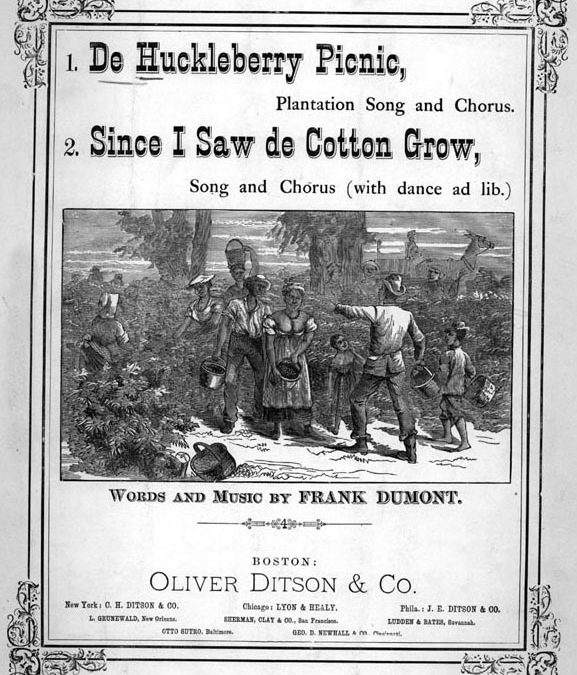 Dumont was not African American. But he was among the most influential vaudeville minstrel players, playwrights, and songwriters of the 19th century. The Witmark Amateur Minstrel Guide, which he published in 1899, was a standard primer for minstrelsy. “De...
Dumont was not African American. But he was among the most influential vaudeville minstrel players, playwrights, and songwriters of the 19th century. The Witmark Amateur Minstrel Guide, which he published in 1899, was a standard primer for minstrelsy. “De...
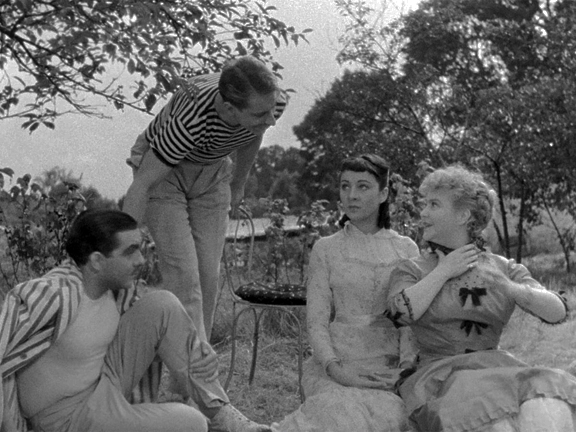 Maupassant uses the phrase une partie de campagne as a euphemism for an outdoor picnic. It’s a sad story about a romantic love that fizzles during a holiday celebrating a birthday, when the Dufours, a middle-class Parisian family, spend a day along the Seine at the...
Maupassant uses the phrase une partie de campagne as a euphemism for an outdoor picnic. It’s a sad story about a romantic love that fizzles during a holiday celebrating a birthday, when the Dufours, a middle-class Parisian family, spend a day along the Seine at the...











